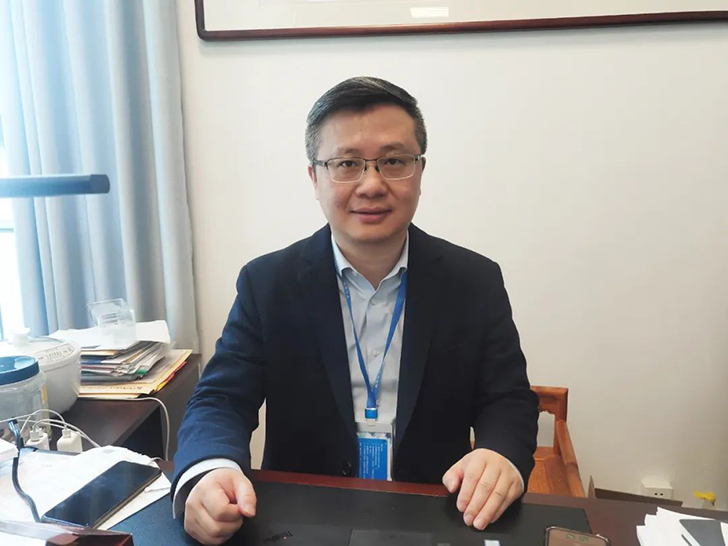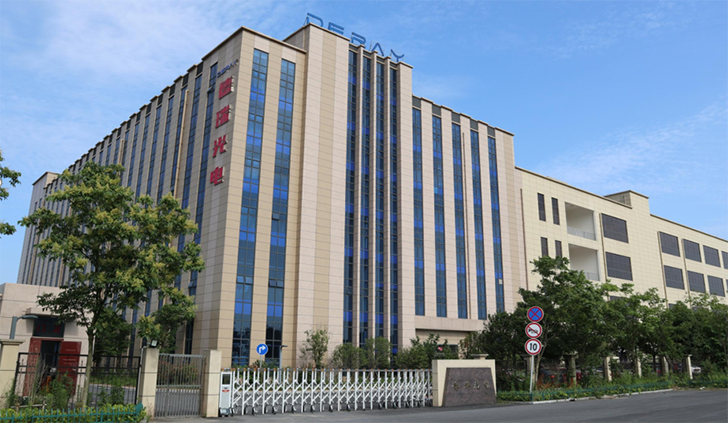您的浏览器版本过低,可能导致网站不能正常访问。
为获得最佳浏览体验,建议您升级或选用其他浏览器,我们列出了
一些最受欢迎的浏览器供您升级
time:2023-03-03publisher:
At the end of last year, Deray was awarded tens of millions of RMB in Pre-A round financing by Spring Capital, and Laser Hub was fortunate enough to invite the company's founder, Mr. Li Chunyong, for an interview. Mr. Li Chunyong graduated from Zhejiang University and worked in senior management at Nokia and IBM for a long time.

Laser Hub : What is your company's presence in the field of optoelectronics? What are the company's current key products? What are the main applications?
Li Chunyong : Jiangxi Deray Optoelectronics Technology Co., Ltd (abbreviated as: Deray) is a high-tech enterprise specializing in semiconductor laser chip industry, integrating scientific research, production and sales, which was officially established in August 2015. Thanks to the company's many years of accumulated R&D and production experience, continuous investment in R&D, and process platform, Deray is able to closely follow the changing market trends and provide our customers with products that quickly meet their requirements with high performance indicators.
The main products currently available in the market include VCSEL 660-680nm/850nm/940nm single tube and array chips, as well as EEL 1550nm high power 1W, 2W and 3W chips and EEL 980nm single mode high power chips. In addition, we offer customization services for special wavelengths and parameters as well as chip process foundry services to our customers.
Our VCSEL chips can be fully benchmarked against foreign leaders. In particular, we have achieved industry leadership in the red VCSEL segment by virtue of our technical strength. With excellent technical strength and fast response capability, Deray can accurately help customers to provide service solutions from chips to devices, with products covering consumer electronics, medical and cosmetology, artificial intelligence, AR & VR, Internet of Things and other industrial applications.

Laser Hub : What is the current market positioning of the company? What are the main core competencies of the company compared to other companies of the same type?
Li Chunyong : It has been more than three years since the first VCSEL chip was successfully trial-produced in Nanchang and validated in the market. We have been focusing on the sensing field with VCSEL chips as our starting point and have developed a number of customers with large orders (millions per order). At the same time, we are also increasing our development of the optical communication market, mainly starting with products of low and medium bandwidth rates, gradually forming a brand effect and expanding the communication customer base. I believe that in the next one to two years, the market will also see the release of Deray products in higher rates, such as 25G and above.
Our core competencies are mainly in the following areas:
First, we have developed our own simulation tool which is well suited for epitaxial structure design, chip design, heat dissipation simulation etc.
Second, more and more customers are willing to increase their cooperation with Deray, not only because of our good cost control ability, but also because of our efficient and rapid response to customer's ability to meet the iterative innovation demand of customer's application and provide high quality service guarantee.
Third, our core team is excellent in technology development, production management, market research and marketing development. We have maintained a high level of stability since the start of our business, ensuring the consistency of our strategy and the sustainability of our business development. As we always says, "It’s all about the people, it’s all about the work".
In addition, Deray is managed with an international business perspective. Since the birth of the first VCSEL chip in Nanchang, we invested RMB 10 million in 2019 to use the i-MES system to build“transparent”, informative and fully traceable intelligent plants. After nearly a year and a half of construction, we successfully passed the French Bureau Veritas ISO9001, ISO14001 and ISO45001 certification, followed by a one-off IATF 16949:2016 automotive quality management system certification a year later.
As a VCSEL chip IDM company, Deray has a complete technology delivery capability including epitaxial structure design, epitaxial growth, chip design, heat dissipation simulation, test and burn-in equipment and packaging, as well as an efficient core team, which is the key point for us to be able to stand in the market.
Laser Hub : What is the layout and technical optimisation of your product development?
Li Chunyong : Based on past market experience, we are considering two main aspects for our future layout.
First, in terms of more mature material systems, we focus on a follow-the-leader strategy, such as VCSEL 940nm and 850nm chips. We focus on benchmarking against the mainstream specifications of Lumentum and II-VI in the international market, and at the same time, make corresponding adjustments according to some individual needs of mainland Chinese customers.
Secondly, we offer customization services for special wavelengths and parameters as well as chip process foundry services to our customers to meet the rapid development iteration needs of market segments. In terms of specific wavelengths, we will focus more on red VCSELs. At present, our VCSEL 660-680nm single tubes and arrays have fully reached or partially surpassed our mainstream industry level in foreign countries, taking the lead in commercial mass production in mainland China in 2020, and has in fact developed into the leading IDM chip factory with the highest share of customers in the mainland China market for red VCSELs.
Laser Hub : How does your company see the future development of downstream industries including optical communication, LIDAR and industrial sensing?
Li Chunyong : Based on the sensing market, Deray will focus more on the automotive electronics market while expanding into the communication field. As mentioned before, we passed the automotive IATF 16949 certification in 2021, and also passed the annual audit last year, which is a good indication of the high importance and expectation we have for the automotive electronics market. The automotive electronics market demand for applications in laser devices can be divided into three main categories. Firstly, automotive LIDAR. Secondly, automotive monitoring sensing, fill light and video. Thirdly, automotive communication transmission. We have sufficient layouts in these 3 areas, with customers both at home and abroad, and are forming a complete Deray ecosystem. Taking the LIDAR market as an example, we has launched a 6-junction type 905nm VCSEL chips to provide mainstream options for domestic downstream integration solution users, and we are also providing more customized development demand solutions for downstream module manufacturers.
In the non-automotive LIDAR market, we have now formed an ecosystem of five or six partner companies in China to provide more options for our main customers, offering rapid response and customized development in ToF and LIDAR modules. We also have the ability to offer a wide range of options and delivery capabilities for larger area sizes of LIDAR-specific chips. At present, Deray has the capability to provide support and security for 4" and 6" products in GaAs materials, which is an important factor for more international customers to choose to work with us for process development.
Also we are more optimistic about the market in the field of automotive monitoring and sensing, and are now actively deploying cooperation with manufacturers around video, camera and sensor fields. We hope to have more market share this year to cooperate with our intended customers for more testing.
In the area of automotive communication transmission, we will increase our efforts in the area of plastic fibre optic transmission. We are already a leading manufacturer in the field of RCLEDs and have many important customers at home and abroad. Whether in red VCSELs or RCLEDs, we have developed designs that are well matched to the development of plastic fibre, and we also hope to provide solutions for the next generation of transmission needs for the smart mobile space of the future.
The future is here, and I believe that in the near future, a new generation of cars gradually evolving into smart mobile spaces will employ more new sensors, possibly numbering more than three to four hundred sensors. They are reflected in the communication needs, navigation needs, intelligent transportation and other aspects inside and outside the car. The total amount of data generated requires a stable and reliable transmission solutions for automotive grade applications that also meets bandwidth design requirements. I believe that Deray will play an excellent supporting role in this field and bring new changes to the automotive industry.